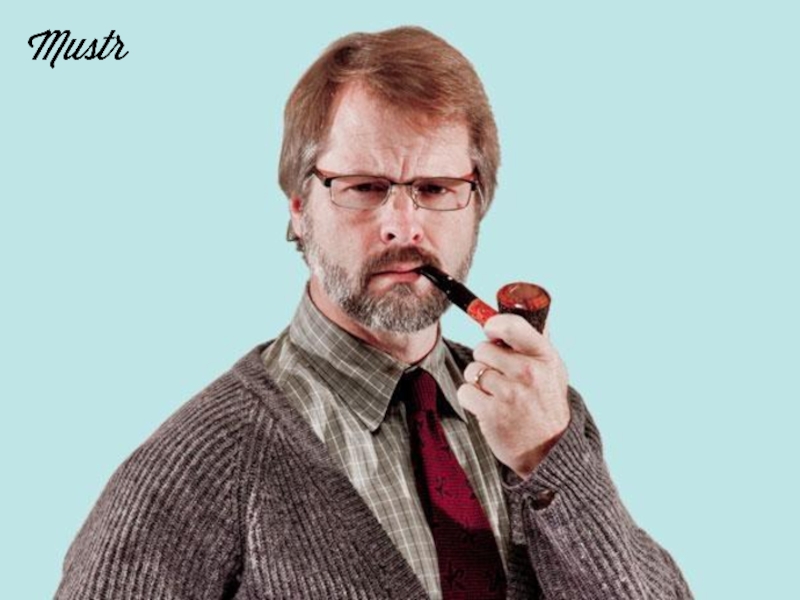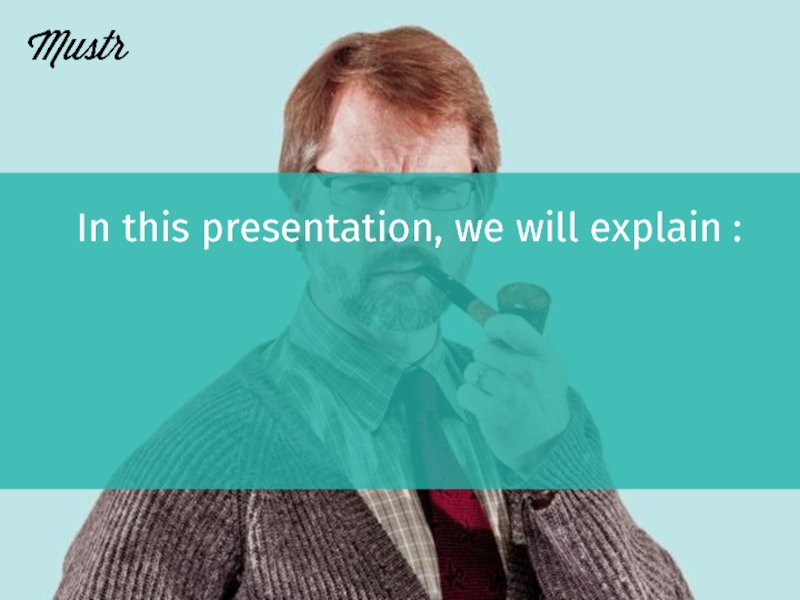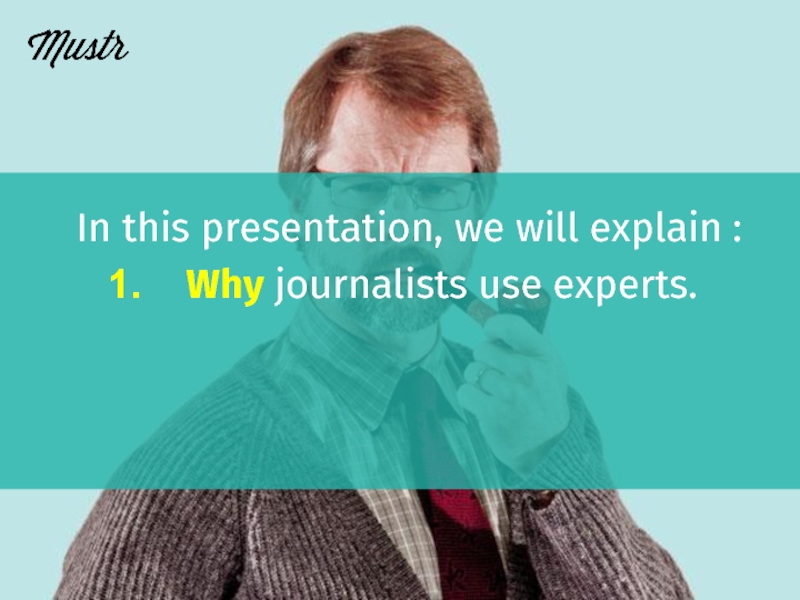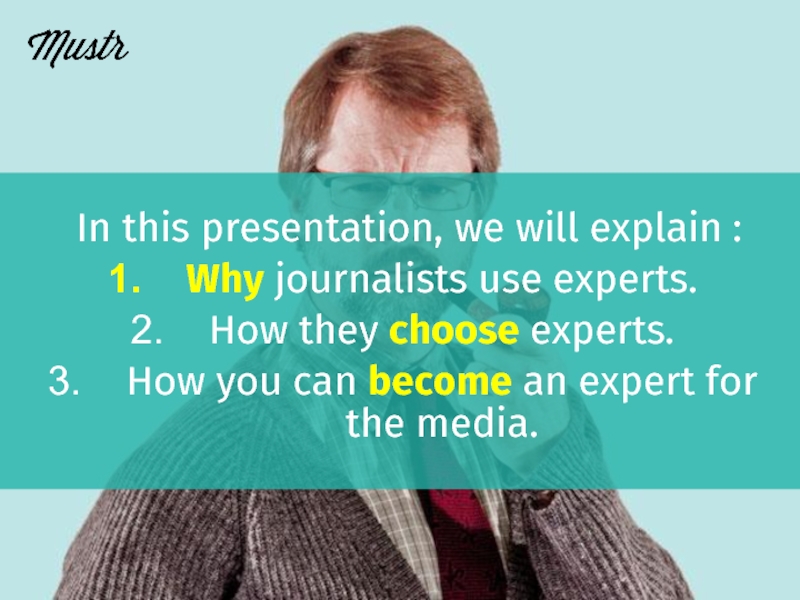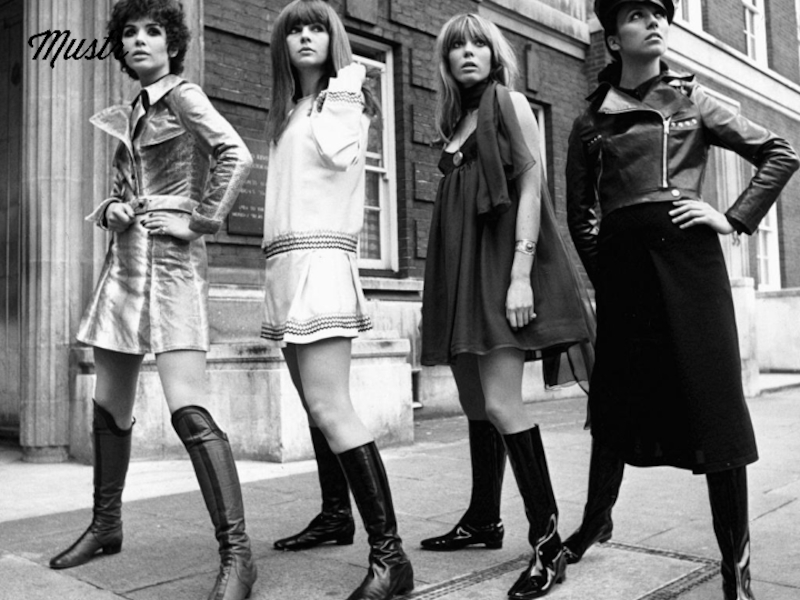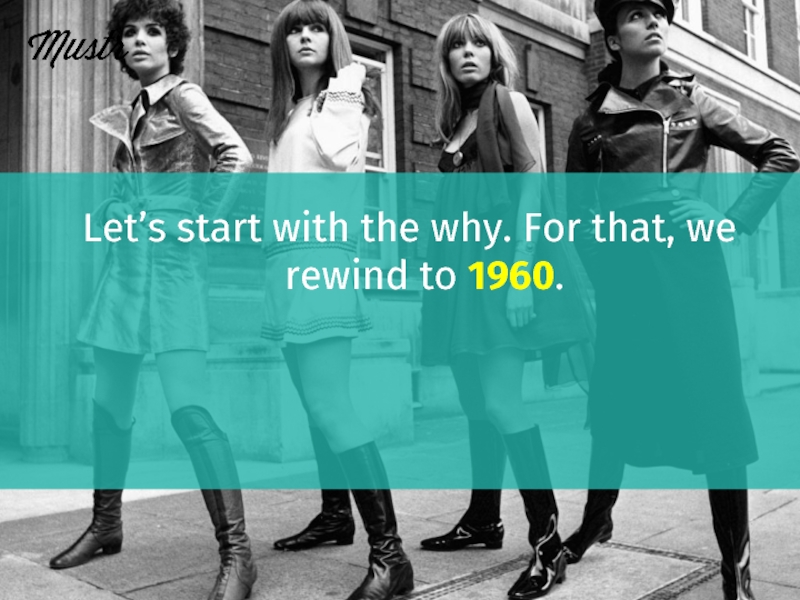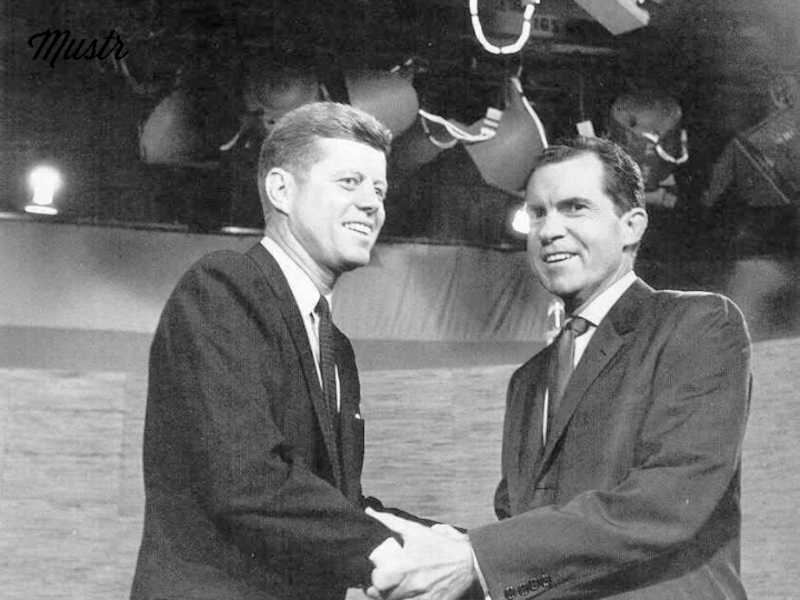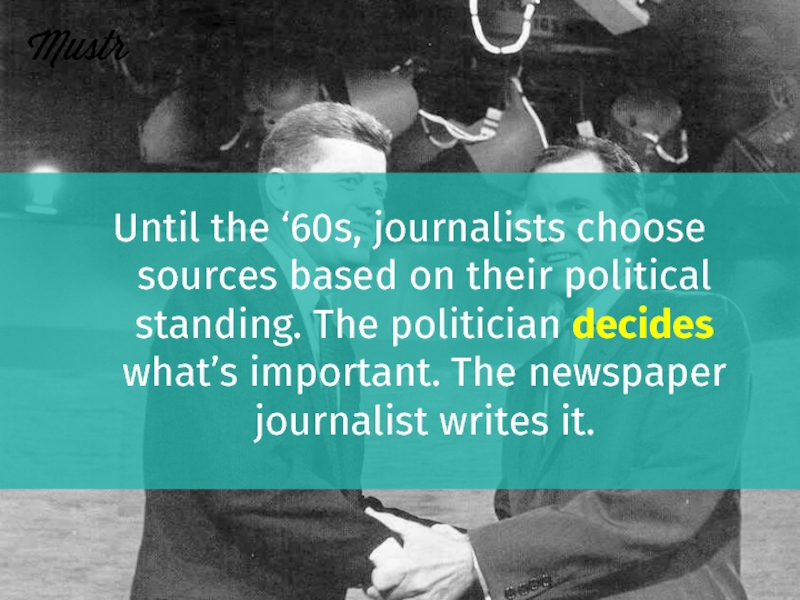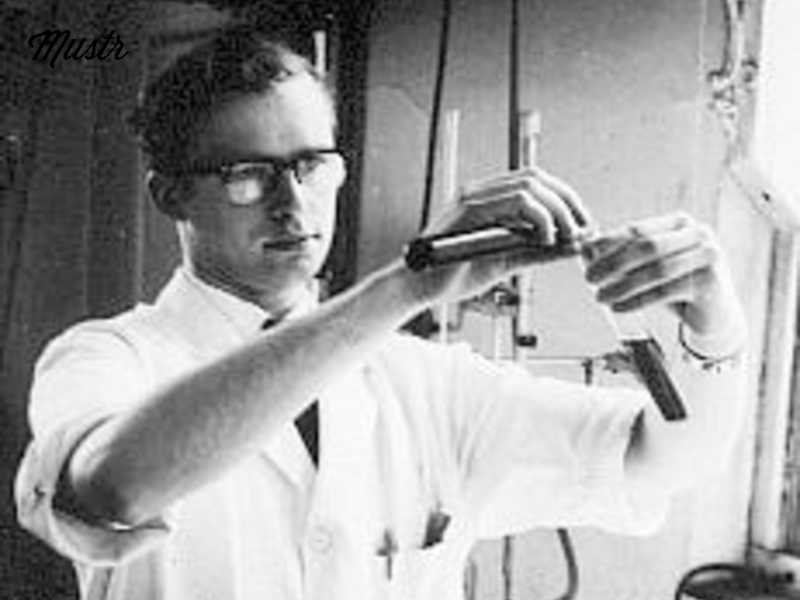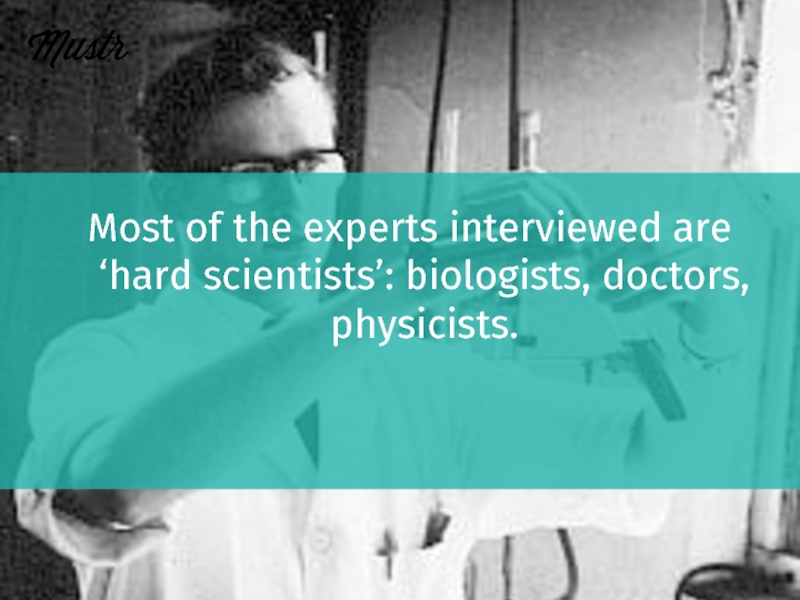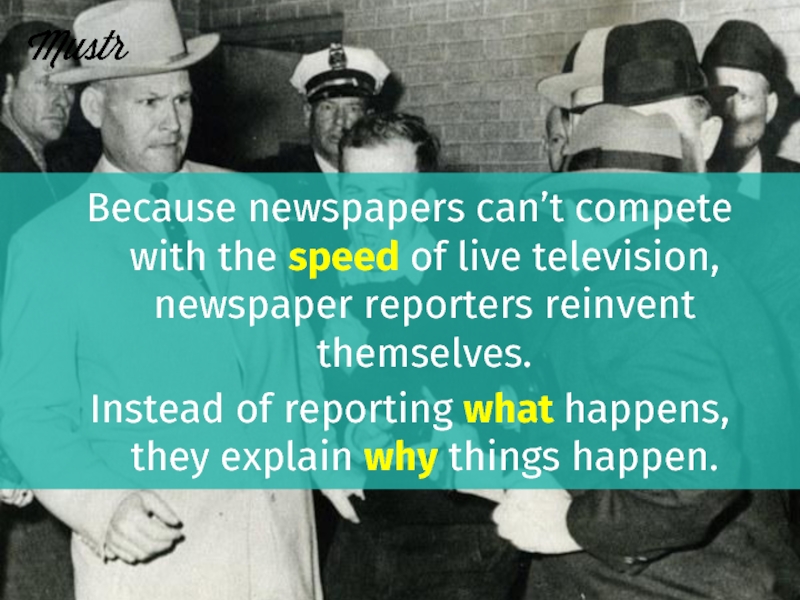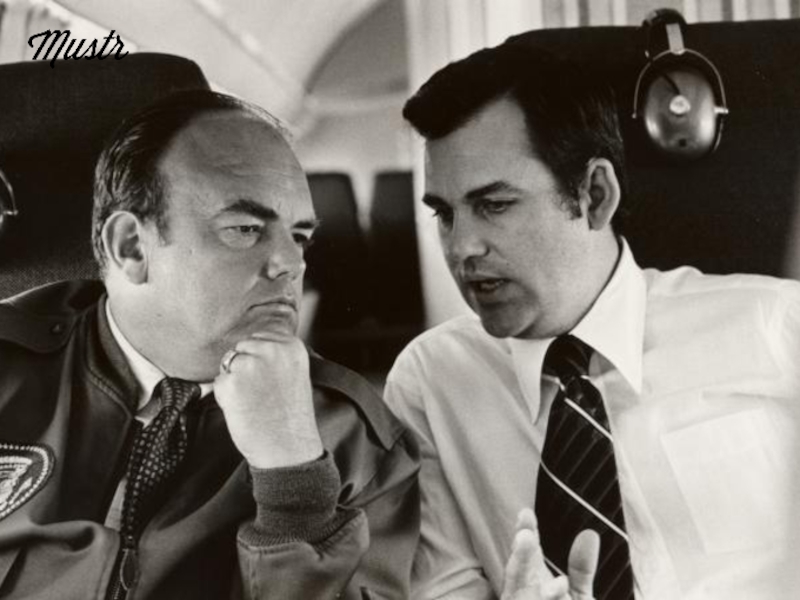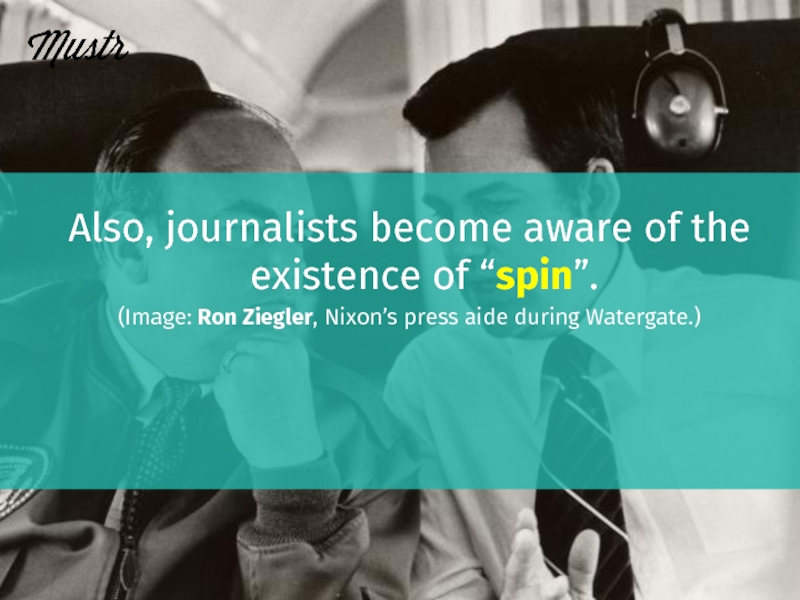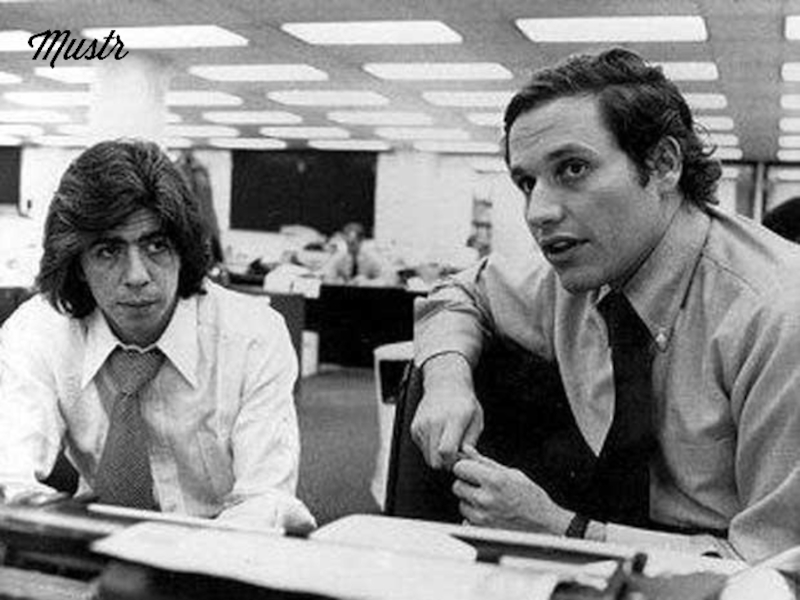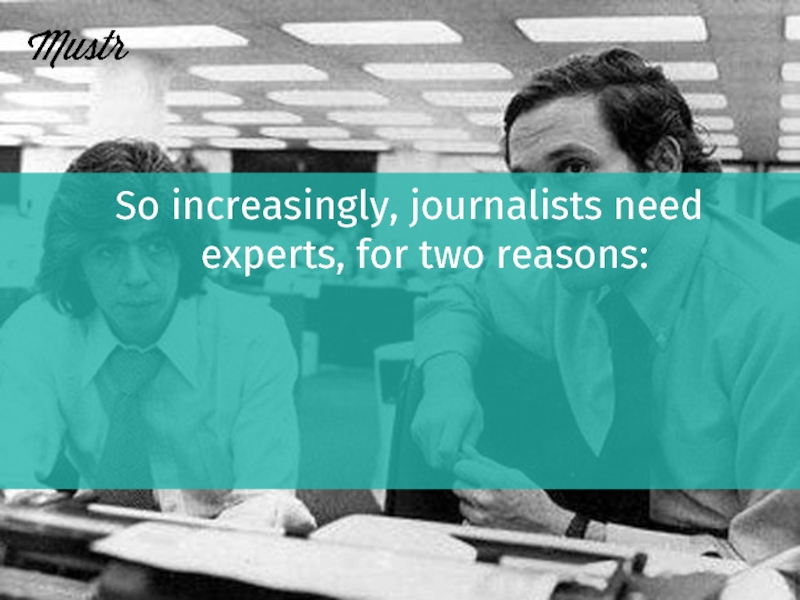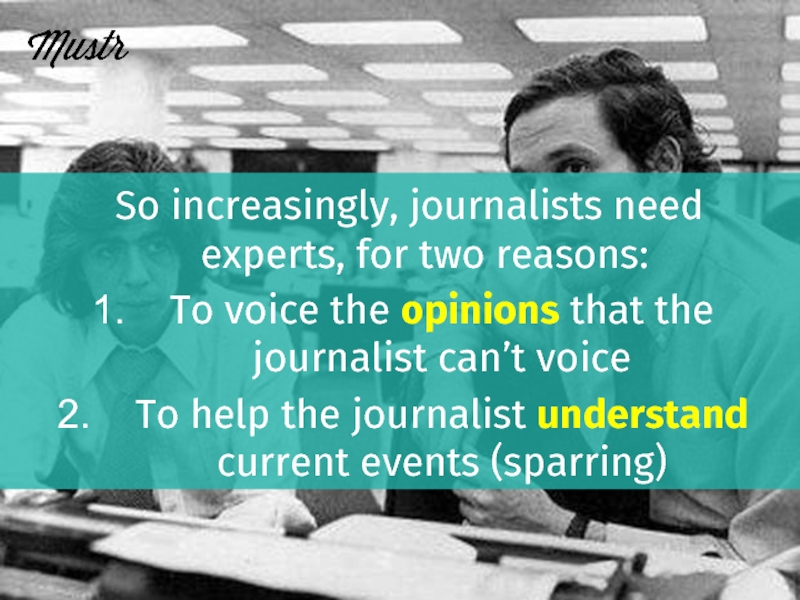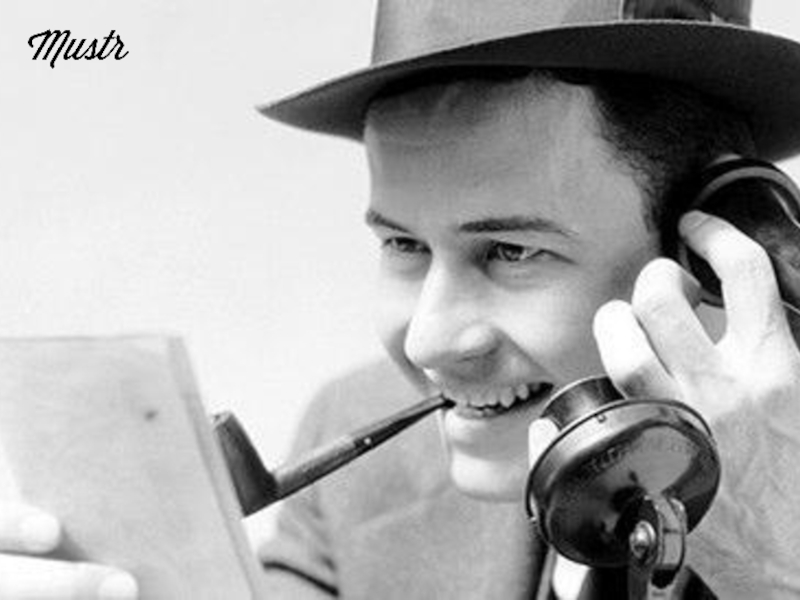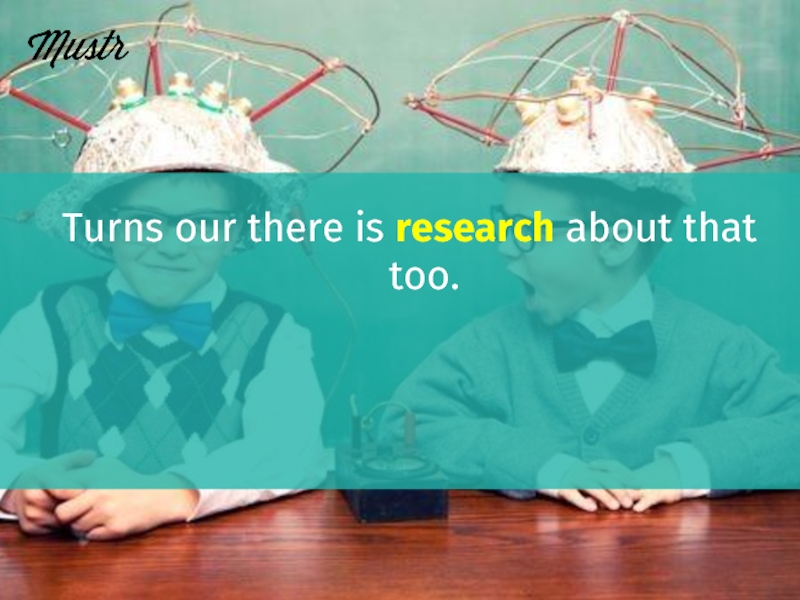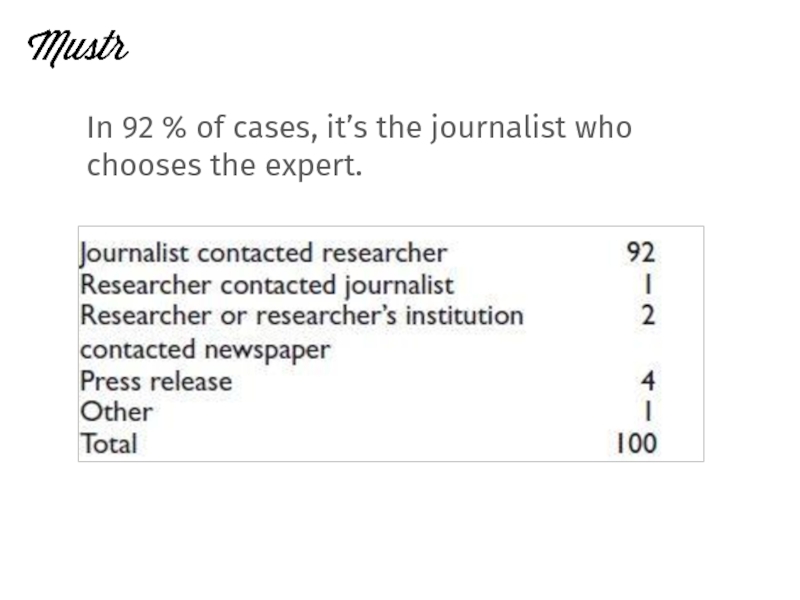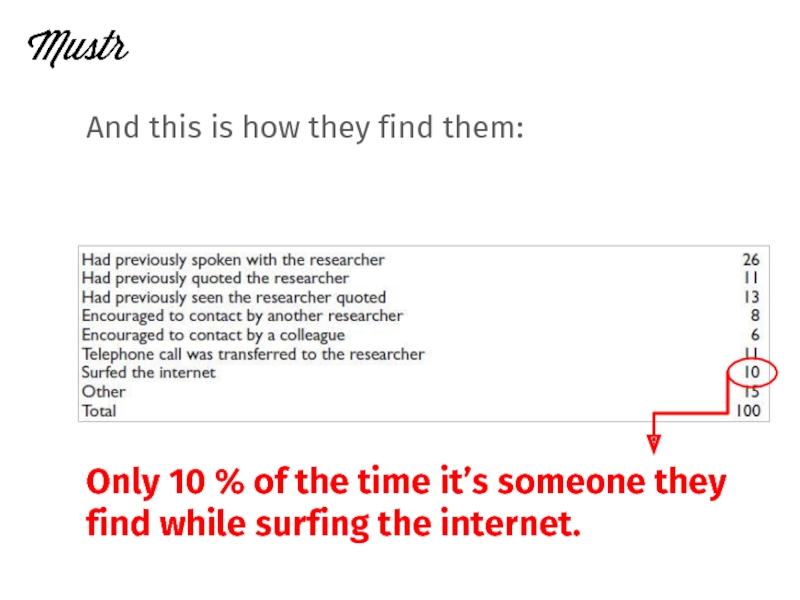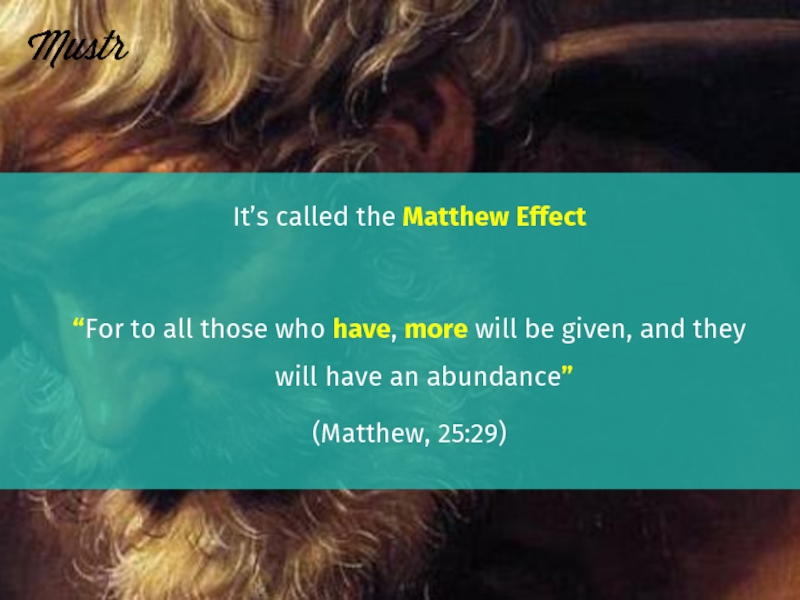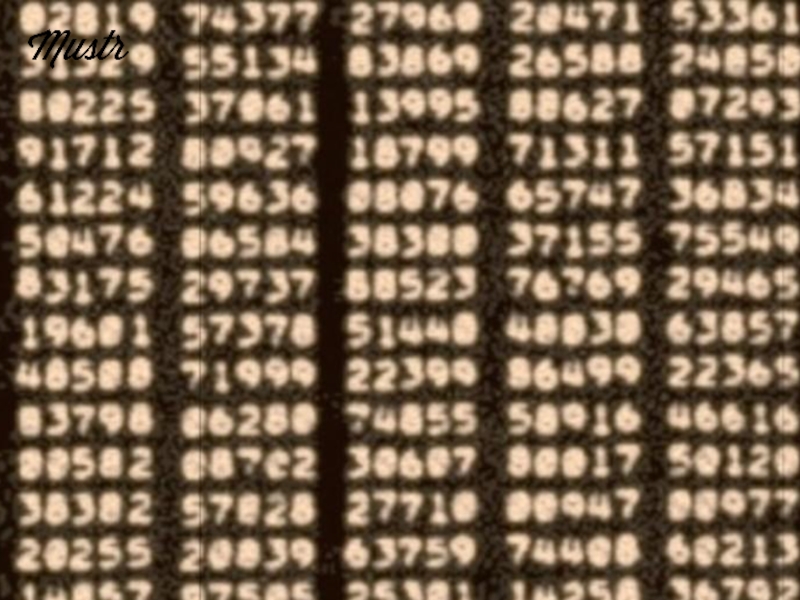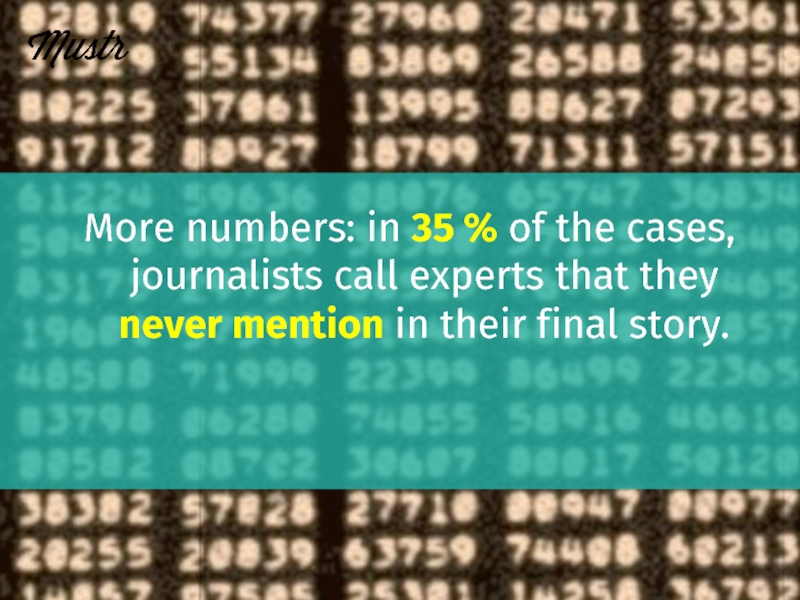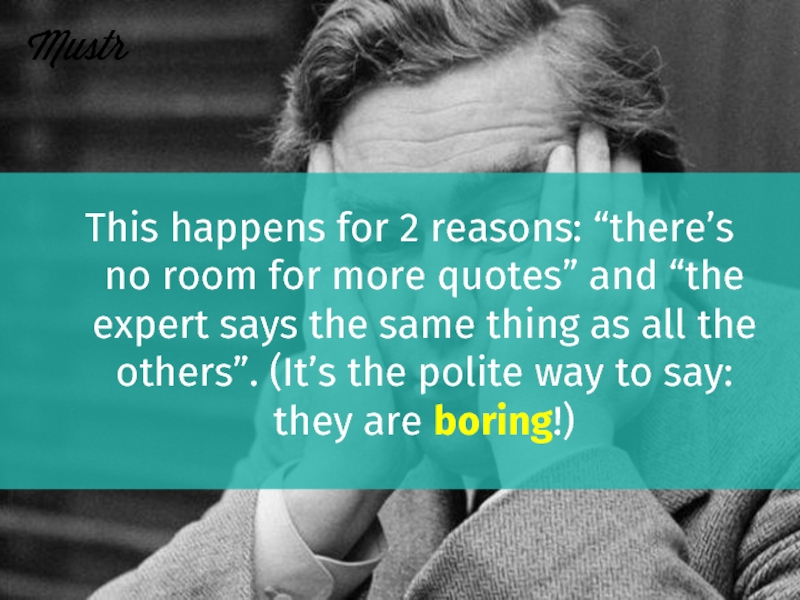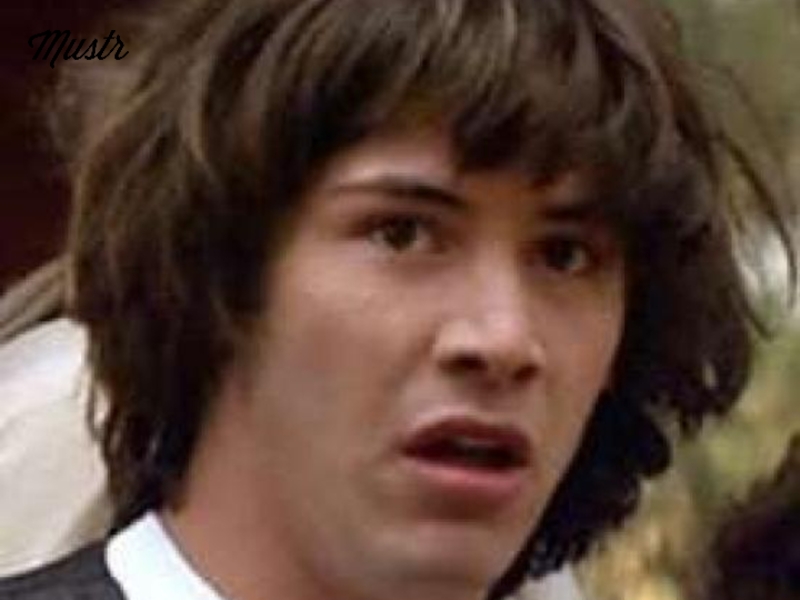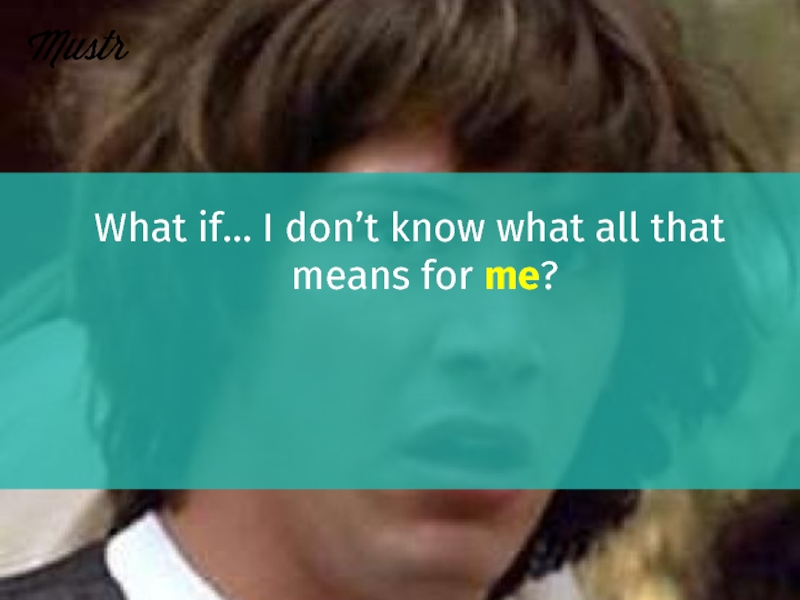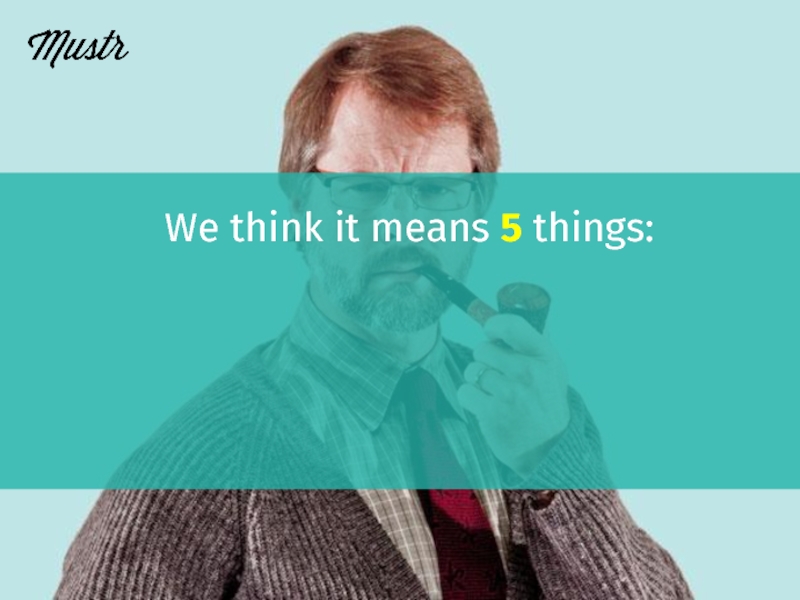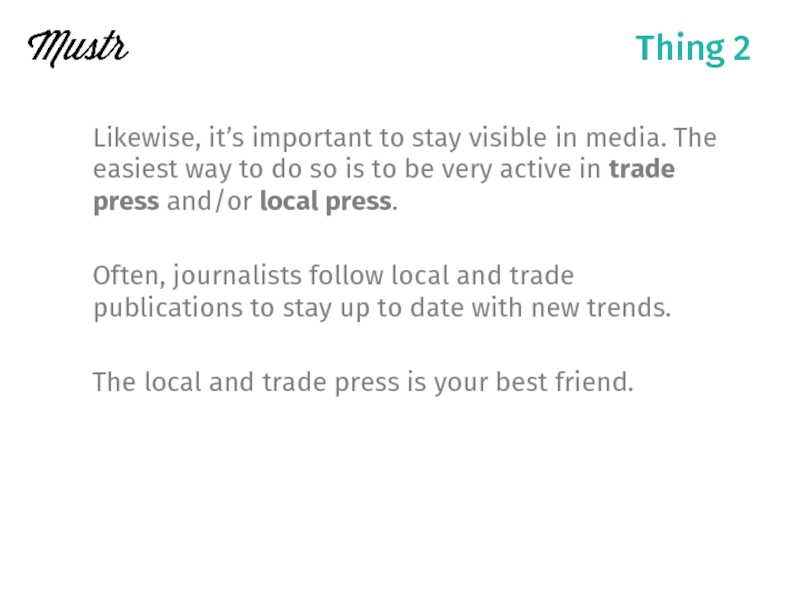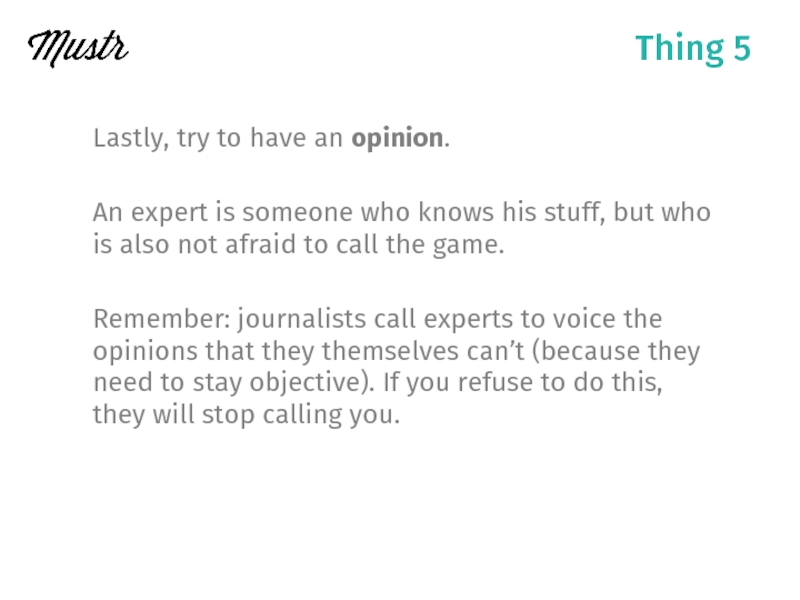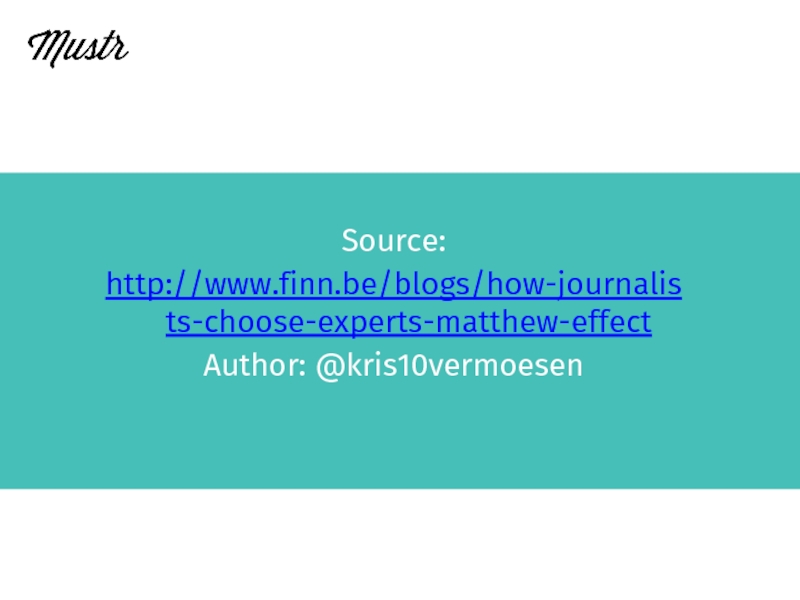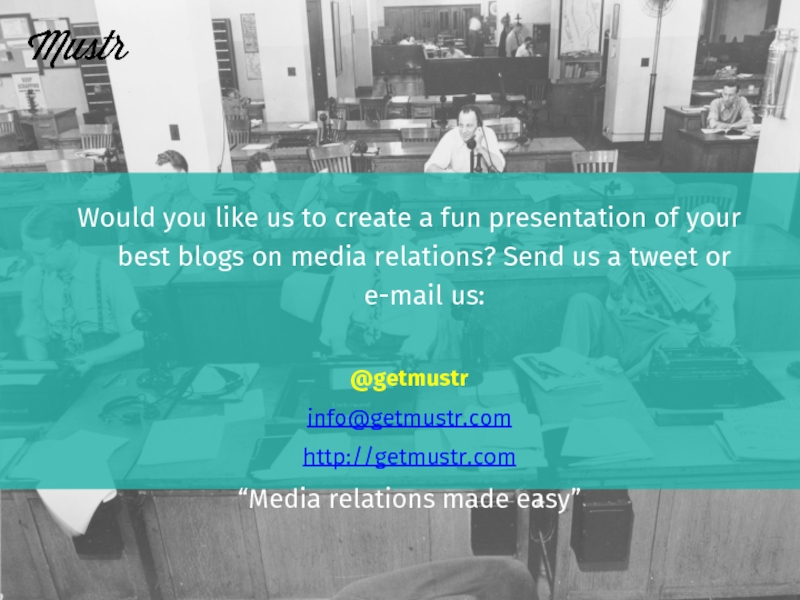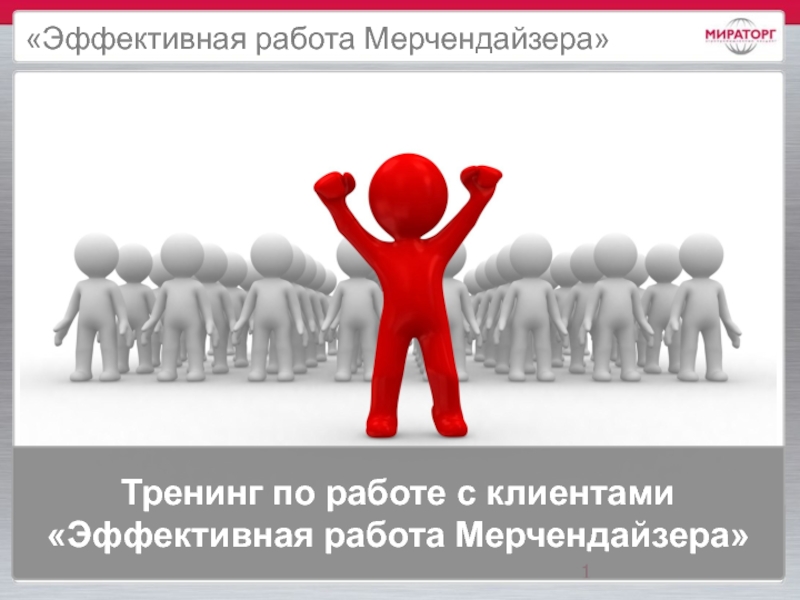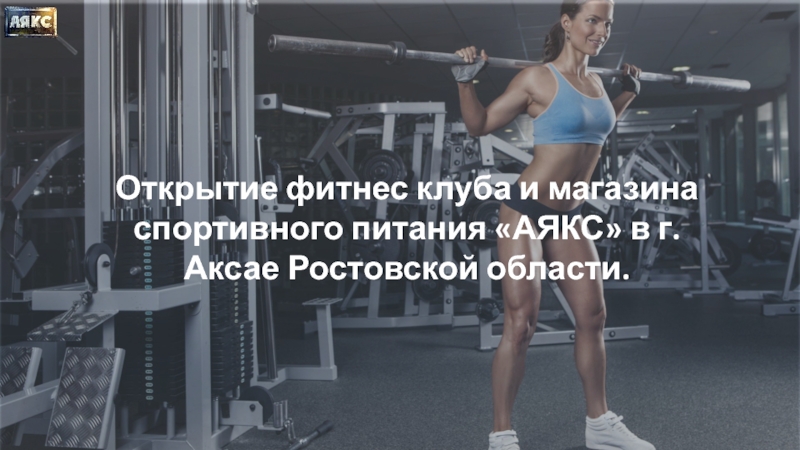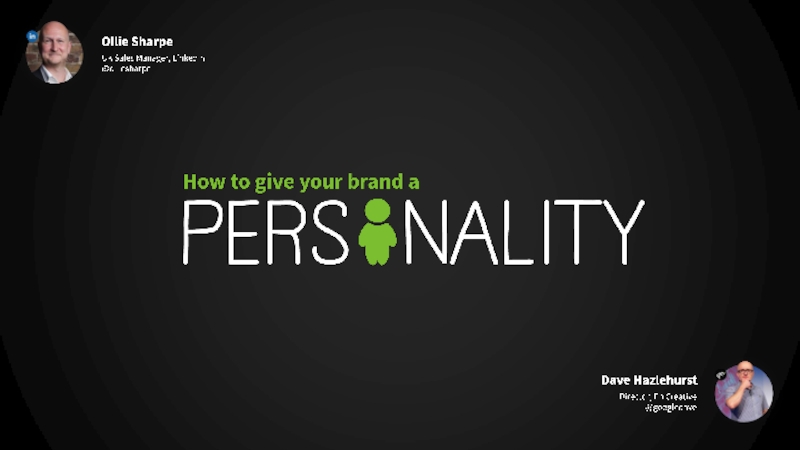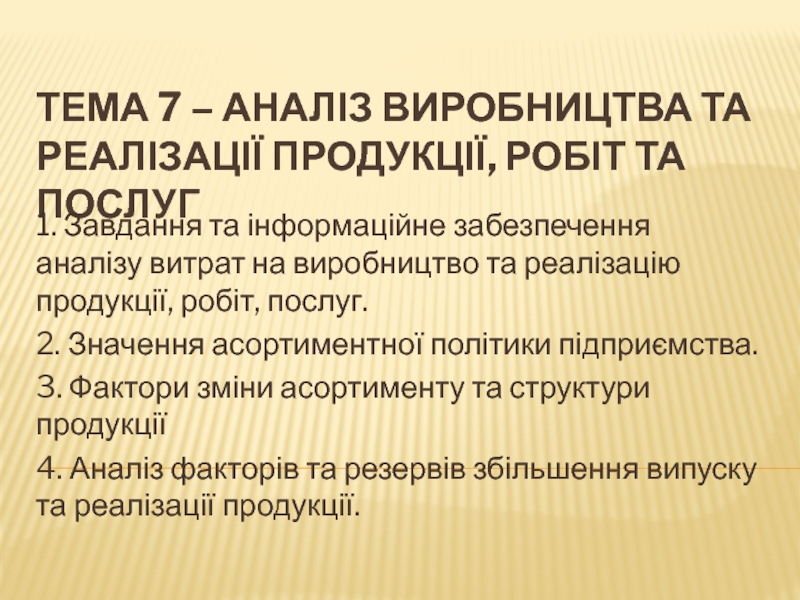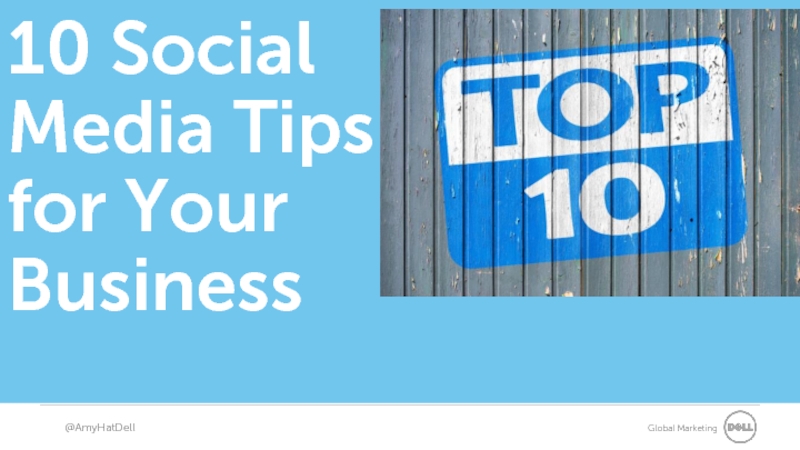- Главная
- Разное
- Дизайн
- Бизнес и предпринимательство
- Аналитика
- Образование
- Развлечения
- Красота и здоровье
- Финансы
- Государство
- Путешествия
- Спорт
- Недвижимость
- Армия
- Графика
- Культурология
- Еда и кулинария
- Лингвистика
- Английский язык
- Астрономия
- Алгебра
- Биология
- География
- Детские презентации
- Информатика
- История
- Литература
- Маркетинг
- Математика
- Медицина
- Менеджмент
- Музыка
- МХК
- Немецкий язык
- ОБЖ
- Обществознание
- Окружающий мир
- Педагогика
- Русский язык
- Технология
- Физика
- Философия
- Химия
- Шаблоны, картинки для презентаций
- Экология
- Экономика
- Юриспруденция
“How to become an expert for the media” презентация
Содержание
- 1. “How to become an expert for the media”
- 3. In this presentation, we will explain :
- 4. In this presentation, we will explain : Why journalists use experts.
- 5. In this presentation, we will explain :
- 6. In this presentation, we will explain :
- 8. Let’s start with the why. For that, we rewind to 1960.
- 10. Until the ‘60s, journalists choose sources based
- 12. Most of the experts interviewed are ‘hard scientists’: biologists, doctors, physicists.
- 14. The rise of television changes that.
- 16. Because newspapers can’t compete with the speed of live television, newspaper reporters reinvent themselves.
- 17. Because newspapers can’t compete with the speed
- 19. Also, journalists become aware of the existence
- 21. So increasingly, journalists need experts, for two reasons:
- 22. So increasingly, journalists need experts, for two
- 23. So increasingly, journalists need experts, for two
- 24. Between 1961 and 2001, the number of
- 26. So how do journalists pick these experts?
- 28. Turns our there is research about that too.
- 29. In 92 % of cases, it’s the journalist who chooses the expert.
- 30. And this is how they find them:
- 31. And this is how they find them:
- 33. It’s called the Matthew Effect
- 34. It’s called the Matthew Effect “For
- 36. More numbers: in 35 % of the
- 38. This happens for 2 reasons: “there’s no
- 40. What if… I don’t know what all that means for me?
- 42. We think it means 5 things:
- 43. Journalists seem to work mostly from memory
- 44. Likewise, it’s important to stay visible in
- 45. Start a blog. While 10 % online
- 46. Be original and bring perspective.
- 47. Lastly, try to have an opinion.
- 48. Source: http://www.finn.be/blogs/how-journalists-choose-experts-matthew-effect Author: @kris10vermoesen
- 49. Would you like us to create a
Слайд 6In this presentation, we will explain :
Why journalists use experts.
How they
choose experts.
How you can become an expert for the media.
How you can become an expert for the media.
Слайд 10Until the ‘60s, journalists choose sources based on their political standing.
The politician decides what’s important. The newspaper journalist writes it.
Слайд 16Because newspapers can’t compete with the speed of live television, newspaper
reporters reinvent themselves.
Слайд 17Because newspapers can’t compete with the speed of live television, newspaper
reporters reinvent themselves.
Instead of reporting what happens, they explain why things happen.
Instead of reporting what happens, they explain why things happen.
Слайд 19Also, journalists become aware of the existence of “spin”.
(Image: Ron
Ziegler, Nixon’s press aide during Watergate.)
Слайд 22So increasingly, journalists need experts, for two reasons:
To voice the opinions
that the journalist can’t voice
Слайд 23So increasingly, journalists need experts, for two reasons:
To voice the opinions
that the journalist can’t voice
To help the journalist understand current events (sparring)
To help the journalist understand current events (sparring)
Слайд 24Between 1961 and 2001, the number of experts quoted in print
journalism increased 700 percent.
+ 700 %
1961
2001
Слайд 30And this is how they find them:
50 % of the
times, journalists call someone they know or have seen quoted elsewhere!
Слайд 31And this is how they find them:
Only 10 % of
the time it’s someone they find while surfing the internet.
Слайд 34It’s called the Matthew Effect
“For to all those who have, more
will be given, and they will have an abundance”
(Matthew, 25:29)
(Matthew, 25:29)
Слайд 36More numbers: in 35 % of the cases, journalists call experts
that they never mention in their final story.
Слайд 38This happens for 2 reasons: “there’s no room for more quotes”
and “the expert says the same thing as all the others”. (It’s the polite way to say: they are boring!)
Слайд 43Journalists seem to work mostly from memory (or speeddial, which is
the same). So it’s important to stay on their radar.
That means checking in with them regularly, by e-mail, Twitter, Facebook, Google+ or whatever channel they prefer.
It can be as simple as favoriting a Tweet of theirs.
That means checking in with them regularly, by e-mail, Twitter, Facebook, Google+ or whatever channel they prefer.
It can be as simple as favoriting a Tweet of theirs.
Thing 1
Слайд 44Likewise, it’s important to stay visible in media. The easiest way
to do so is to be very active in trade press and/or local press.
Often, journalists follow local and trade publications to stay up to date with new trends.
The local and trade press is your best friend.
Often, journalists follow local and trade publications to stay up to date with new trends.
The local and trade press is your best friend.
Thing 2
Слайд 45Start a blog. While 10 % online search isn’t much, it
is a way to be recognised.
Also, blogs are an excellent way to stay in touch with journalists. You can tweet them a link to your blog, asking their feedback or input. (Or you can quote them in your blogs).
You might also send them your blog before publishing it – maybe they’re interested in running it as a guest contribution.
Also, blogs are an excellent way to stay in touch with journalists. You can tweet them a link to your blog, asking their feedback or input. (Or you can quote them in your blogs).
You might also send them your blog before publishing it – maybe they’re interested in running it as a guest contribution.
Thing 3
Слайд 46Be original and bring perspective.
The research shows that your quotes
will end up on the cutting floor if you don’t come up with something surprising to say.
Prepare your media interventions. Try to think what other experts will add, and try to come up with a novel idea, a surprising reference or a strong metaphor for what’s happening.
Prepare your media interventions. Try to think what other experts will add, and try to come up with a novel idea, a surprising reference or a strong metaphor for what’s happening.
Thing 4
Слайд 47Lastly, try to have an opinion.
An expert is someone who knows
his stuff, but who is also not afraid to call the game.
Remember: journalists call experts to voice the opinions that they themselves can’t (because they need to stay objective). If you refuse to do this, they will stop calling you.
Remember: journalists call experts to voice the opinions that they themselves can’t (because they need to stay objective). If you refuse to do this, they will stop calling you.
Thing 5
Слайд 48Source:
http://www.finn.be/blogs/how-journalists-choose-experts-matthew-effect
Author: @kris10vermoesen
Слайд 49Would you like us to create a fun presentation of your
best blogs on media relations? Send us a tweet or e-mail us:
@getmustr
info@getmustr.com
http://getmustr.com
“Media relations made easy”
@getmustr
info@getmustr.com
http://getmustr.com
“Media relations made easy”

